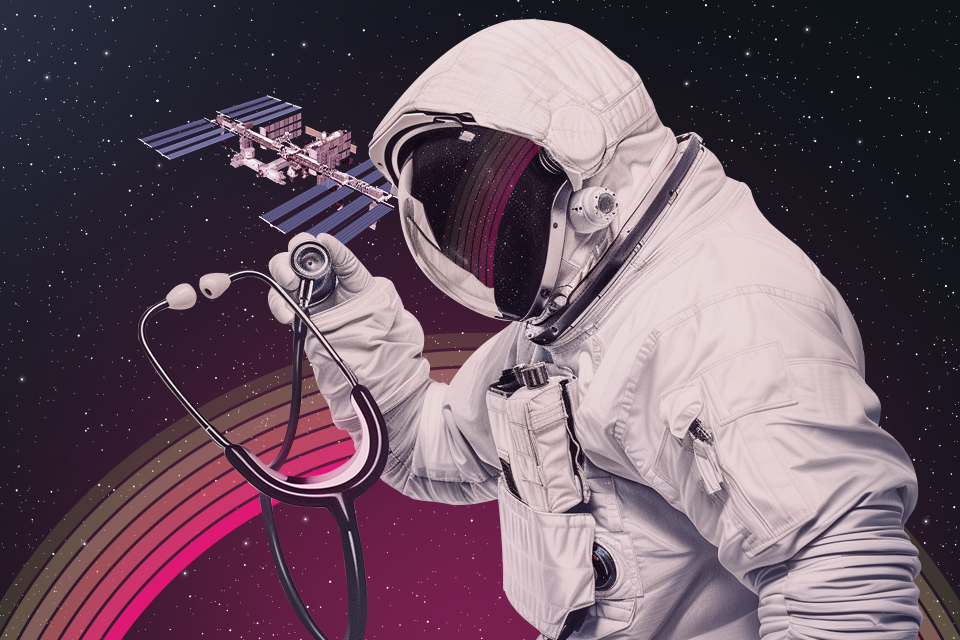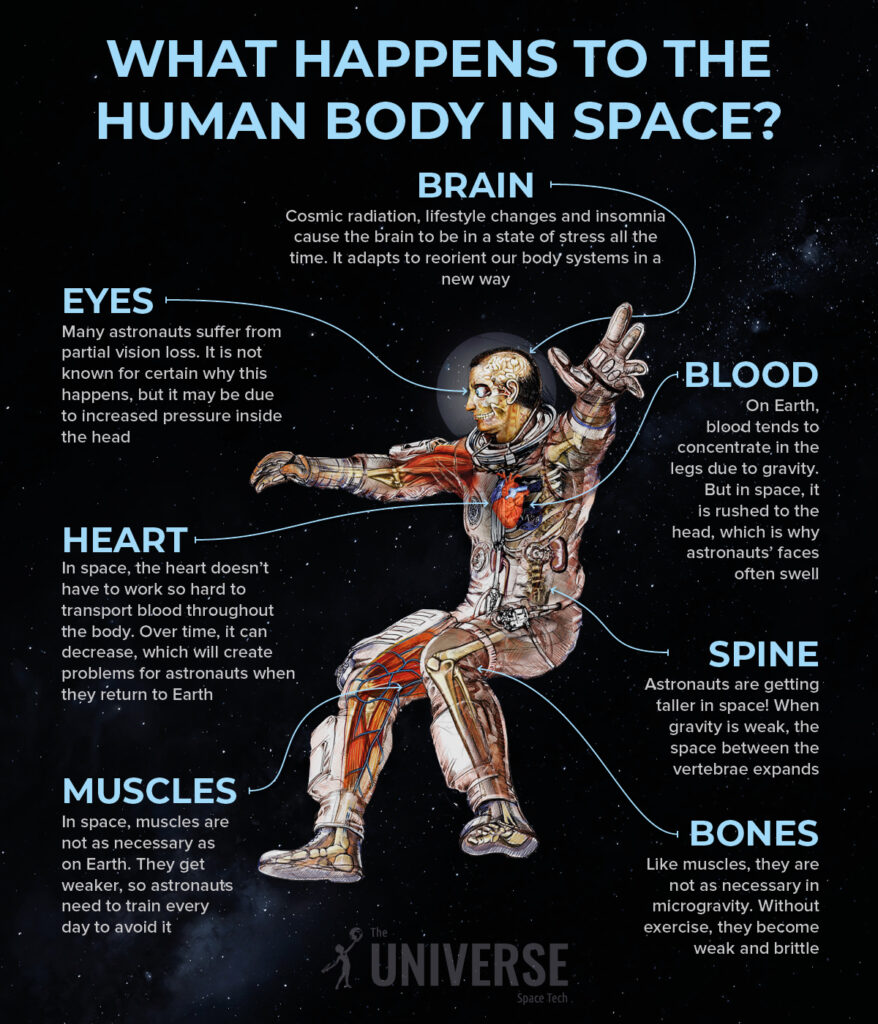Space is the most hostile environment for humans. This is felt even when astronauts are inside spacecraft and stations. Microgravity and radiation affect various systems of the organisms and in most cases the changes are negative.

1. How does space affect human health?
The most important factor that affects human health in space is radiation. Its sources are many space objects, but the Sun produces the largest number of high-energy particles near the Earth. And the walls of spacecraft and stations are too thin to hold them.
Radiation is the most inconspicuous of all the factors affecting human health in space. The only visible changes that it can cause in a few weeks are a decrease in immunity. However, it is the most dangerous of all that astronauts face. Because every second they receive a dose of radiation, ten times higher than on the surface of the Earth under the protection of the atmosphere of our planet.
Staying in orbit for a long time has an extremely strong effect on the risk of developing cancer, or even radiation sickness. Astronauts’ DNA breaks down all the time, and you can never tell what it will turn out to be in decades.
2. What happens to bones and muscles in zero gravity?
The most noticeable problem that astronauts have during space travel is related to the musculoskeletal system. Muscles and bones do not receive the load that is common for them on Earth. The first ones gradually atrophy, their volume decreases. That is why astronauts are so weak after returning that it is difficult for them to even walk.
The situation with the bones is a little more complicated. They do not decrease in volume, but they lose a lot of calcium and become very fragile. This increases the chance of fractures both during the flight and after return.
To prevent these problems, astronauts on the ISS regularly spend several hours on simulators, providing their bones and muscles with the loads they lack.
3. How does space affect the human cardiovascular system?
The human cardiovascular system also suffers greatly during its stay in space. This is influenced by several factors at once. First of all, negative changes occur with the heart. It, like the rest of the muscles, has a lack of load and degrades, which increases the risk of a heart attack after returning to Earth. The musculature inside the vessels suffers in a similar way. All the same physical activity helps to combat this.
In addition, in zero gravity, red blood cells and the bone marrow that produces them suffer greatly. They are affected by both radiation and weightlessness. The number of blood cells in astronauts remains reduced for several weeks after returning to Earth, and then recovers.
4. Why do astronauts’ eyesight deteriorate?
Among other things, astronauts’ eyesight deteriorates during long flights. The bulb of eye is adapted by evolution to function in the conditions of gravity. In zero gravity, its position changes and it cannot move normally, which is necessary to obtain a high-quality image.
In such a situation, the nerves in the retina of the eye gradually begin to degrade. This can permanently worsen vision over time.

5. What happens to the nervous system in space?
The human nervous system in space is subjected to a number of tests. The most obvious of them is a disturbance of a vestibular mechanism. In zero gravity, the human balance organs do not receive any signals for months and this negatively affects their performance. In addition, blood flow to the brain changes in microgravity, which affects its operation.
In addition, human circadian rhythms change on the space station. After all, dawn comes 16 times during the day and sunset the same number of times. The body begins to get confused when to sleep and when to eat. If you do not organize your daily routine, this can greatly reduce your performance.
Follow us on Twitter to get the most interesting space news in time
https://twitter.com/ust_magazine


